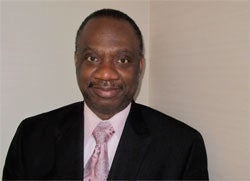Researching race and emotion
Note: This is the first installment of a new audio series for WHYY, in partnership with 900AM WURD. The series is In the Gap: Voices from the health divide.
Series producer and health reporter Taunya English asked about racial discrimination and psychological well-being.
Psychologists and health researchers are curious about an idea that seems like plain old common sense to many African Americans. University of Utah professor William Smith calls it “racial battle fatigue.”
He says unfair treatment and racial discrimination are “micro-aggressions” that can pile up over a lifetime.
“First cut might not seem to be so much. You might overcome it. But when you’re constantly cut and cut and cut, you’ll bleed to death. Those cuts will just drain the blood and the vitality from someone,” Smith said.
During a conference on racial and ethnic discrimination in February, disparities expert Brian Smedley called for better research.
“It’s about understanding how the experience of living in a segregated high-poverty community, on top of interpersonal discrimination–not being able to get a job–on top of internalized racism gets under the skin and shapes health,” Smedley said.
Experts say other kinds of discrimination also have the potential to undermine health. Racial battle fatigue is not a recognized mental health disorder, but the feelings behind it are familiar to many.
The idea surfaced in this “Saturday Night Live” skit with actress Queen Latifah.
“Do I get stress headaches at work? Yes, definitely. From the moment I get in, it’s ‘Denise, we need this,’ ‘Denise, we need that.’ Which is stressful because my name is Linda. Denise is the other black woman that works here.
“My head and neck are starting to throb. And that’s when I reach for Excedrin. New Excedrin for Racial Tension Headaches. Excedrin RT works fast, taking me from ‘Oh, no you didn’t;’ to ‘I wish a (bleep) would.’ “
“Announcer: Excedrin for Racial Tension Headaches, fast relief for hundreds of years of nagging pain.”
Philadelphia psychologist Dan Collins is lukewarm about the phrase “racial battle fatigue,” but he does believe in the health consequences of discrimination.
“Really, racial battle fatigue is another way of saying post-traumatic stress,” Collins said.
 Philadelphia psychologist R. Dandridge Collins is author of “The Trauma Zone.” Collins: “Even if we don’t agree, if we can just hear and respect the perspective, the perception that someone has that they are being treated unfairly, that creates the framework for meaningful dialogue.” (Taunya English for NewsWorks)
Philadelphia psychologist R. Dandridge Collins is author of “The Trauma Zone.” Collins: “Even if we don’t agree, if we can just hear and respect the perspective, the perception that someone has that they are being treated unfairly, that creates the framework for meaningful dialogue.” (Taunya English for NewsWorks)
Collins says, in therapy, he gives clients space to figure out if a slight or insult is race-related. He says other therapists may reject the idea when clients link unfair treatment, stress and race.
“It’s perceived that they’re jumping to conclusions. It’s kind of crazy-making because you wonder am I overreacting to this? Of the many things that can cause people to experience overwhelming stress some of the issues can be racism. One of the things that we have to do as healers is to give voice to it,” he said.
At McClain’s barber shop in Mount Airy, the stories flow easily. The incident Donald Fuller remembers best happened when he was 14. The teenager slowed down to hold the elevator for two white women behind him.
“One of them was getting ready to get on, and the other one sort of grabbed her hand and told her ‘We’ll wait for the next one.’ There was plenty of room on the elevator and I was trying to be a gentleman, prior to that I’d never really experienced anything like that,” he said.
“That has a tendency to tear you down mentally and physically, I think it would probably be a proven medical fact if we delve into it a little bit deeper,” said 64-year-old Jimmy Gaines.
Health researchers are looking into it, including Jose Soto, an assistant professor at Pennsylvania State University.
Penn State used a large national survey to ask how the experience of racism relates to generalized anxiety, a disorder that creates overwhelming worry and interferes with life.
“African Americans who said that they experienced greater incidents of racial discrimination had greater odds of having generalized anxiety disorder at some point throughout their life,” Soto said.
The survey asked people about unfair treatment that they considered to be motivated by race, things like being denied a loan or harassed by the police.
“We don’t have enough understanding of what that does to the individual in terms of health and healthy functioning,“ said Soto, who’s also a psychologist.
Soto wonders if experience with intense or prolonged discrimination puts people on edge. That “emotional muscle memory” may lead to more serious psychological concerns, he says.
“Most clients don’t come in and talk about their experiences as a racial minority in this country and how that’s impacted them. And I don’t think most therapists ask about that,” Soto said.
He wishes they would.
Taunya English will appear on 900AM WURD’s HealthQuest Live Show at noon Monday, April 18, to discuss this story.
WHYY is your source for fact-based, in-depth journalism and information. As a nonprofit organization, we rely on financial support from readers like you. Please give today.

